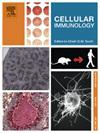Divergent impact of endotoxin priming and endotoxin tolerance on macrophage responses to cancer cells
IF 2.9
4区 医学
Q2 CELL BIOLOGY
引用次数: 0
Abstract
Endotoxin tolerance (ET) is an adaptive phenomenon that arises from the repeated exposure of immune cells, such as macrophages, to endotoxins like lipopolysaccharide (LPS). Initially, when macrophages are activated by LPS, they produce inflammatory mediators that drive the primary immune response. However, this response is significantly diminished during the establishment of ET, creating an immunosuppressive environment. This environment can facilitate the development and progression of malignant conditions, including cancer.
Our research focused on the interactions between immune cells and the tumor microenvironment under ET conditions. Through comprehensive in vivo and in vitro studies employing various research techniques, we have demonstrated that interactions between endotoxin-tolerant macrophages (MoET) and cancer cells contribute to a pro-tumorigenic condition. Notably, we observed that MoET adapt a pro-tumorigenic, immunosuppressive M2 phenotype (CD163 expression). These macrophages involves distinct metabolic pathways, not depending solely on glycolysis and oxidative phosphorylation. Furthermore, our in vivo findings revealed macrophage infiltration within tumors under both ET and non-ET conditions, highlighting the suppressed immune landscape in the presence of ET. These findings suggest that ET plays a pivotal role in shaping tumor-associated immune responses and that targeting ET pathways could offer a novel and promising therapeutic approach for cancer treatment.
内毒素引物和内毒素耐受性对巨噬细胞对癌细胞反应的不同影响
内毒素耐受(ET)是免疫细胞(如巨噬细胞)反复暴露于内毒素(如脂多糖(LPS))时产生的一种适应性现象。最初,当巨噬细胞被LPS激活时,它们产生炎症介质,驱动初级免疫反应。然而,这种反应在ET建立期间显著减弱,形成免疫抑制环境。这种环境可以促进恶性疾病的发展和进展,包括癌症。我们的研究重点是在ET条件下免疫细胞与肿瘤微环境的相互作用。通过采用各种研究技术的综合体内和体外研究,我们已经证明内毒素耐受巨噬细胞(MoET)和癌细胞之间的相互作用有助于促肿瘤发生。值得注意的是,我们观察到MoET具有促肿瘤、免疫抑制的M2表型(CD163表达)。这些巨噬细胞涉及不同的代谢途径,而不仅仅依赖于糖酵解和氧化磷酸化。此外,我们的体内研究结果显示,在ET和非ET条件下,肿瘤内的巨噬细胞浸润,突出了ET存在下的免疫抑制景观。这些研究结果表明,ET在形成肿瘤相关免疫反应中起着关键作用,靶向ET途径可能为癌症治疗提供一种新颖而有前途的治疗方法。
本文章由计算机程序翻译,如有差异,请以英文原文为准。
求助全文
约1分钟内获得全文
求助全文
来源期刊

Cellular immunology
生物-免疫学
CiteScore
8.20
自引率
2.30%
发文量
102
审稿时长
30 days
期刊介绍:
Cellular Immunology publishes original investigations concerned with the immunological activities of cells in experimental or clinical situations. The scope of the journal encompasses the broad area of in vitro and in vivo studies of cellular immune responses. Purely clinical descriptive studies are not considered.
Research Areas include:
• Antigen receptor sites
• Autoimmunity
• Delayed-type hypersensitivity or cellular immunity
• Immunologic deficiency states and their reconstitution
• Immunologic surveillance and tumor immunity
• Immunomodulation
• Immunotherapy
• Lymphokines and cytokines
• Nonantibody immunity
• Parasite immunology
• Resistance to intracellular microbial and viral infection
• Thymus and lymphocyte immunobiology
• Transplantation immunology
• Tumor immunity.
 求助内容:
求助内容: 应助结果提醒方式:
应助结果提醒方式:


